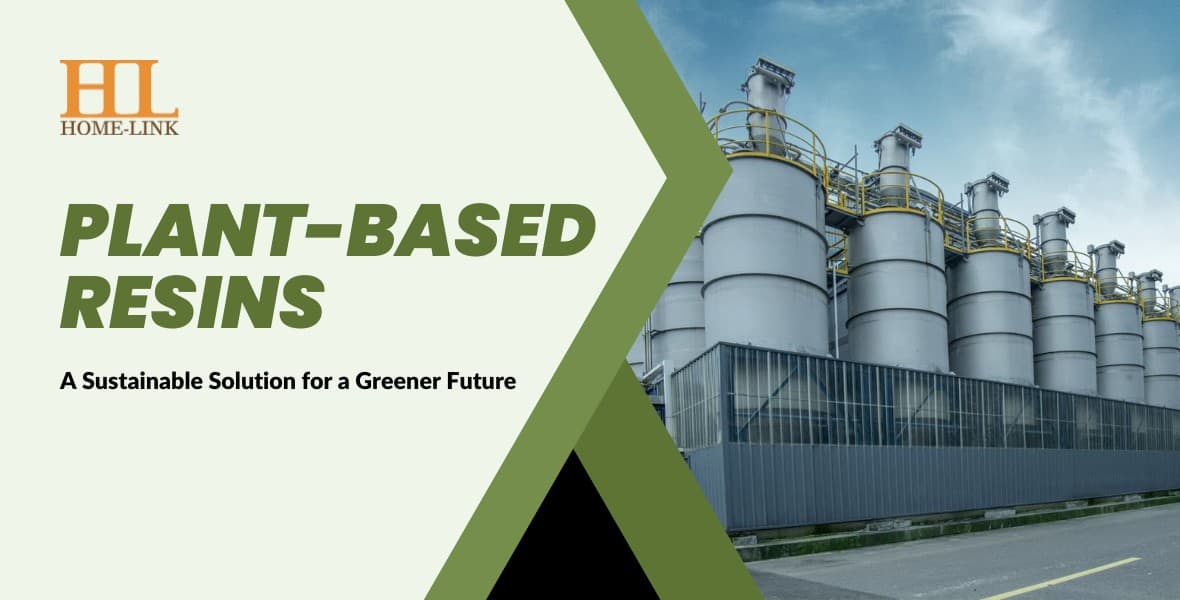As the world becomes increasingly aware of the negative impact of traditional plastic materials on the environment, companies are exploring more sustainable alternatives. Plant-based resins have emerged as a viable solution, and Ningbo Homelink Eco-iTech Co., Ltd. is at the forefront of this movement. In this blog post, we will explore the benefits of plant-based resins and how Homelink’s technology is leading the way in sustainable production.
What is Plant-Based Resins?
The term “plant-based resin” refers to any material that is derived from plant sources and can be used as a substitute for traditional petrochemical-based plastics. Plant-based resins are renewable, biodegradable, and compostable, making them an ideal solution for a wide range of applications. Here are some of the benefits of using plant-based resins:
- Sustainability: Plant-based resins are derived from renewable plant sources, making them a more sustainable alternative to traditional plastic materials.
- Biodegradability: Plant-based resins are biodegradable, meaning they can be broken down by microorganisms in the environment, reducing the impact on the environment.
- Compostability: Many plant-based resins are compostable, meaning they can be broken down into organic matter in a composting facility.
- Reduced Carbon Footprint: Plant-based resins have a lower carbon footprint than traditional plastics, as they require less energy to produce and emit fewer greenhouse gases.
Homelink’s Commitment to Sustainable Production
Ningbo Homelink Eco-iTech Co., Ltd. is a world leader in the manufacture of tableware using compostable plant-based resins. Homelink began studying more sustainable sources of resins in 2010, and in 2012, the company purchased equipment to begin producing more than 5,000 MT of biodegradable material. Today that number has increased to 100,000 MT, making Homelink the largest compounder and fabricator in the world.
Homelink uses two types of plant-based resins: polylactic acid (PLA) and polyhydroxyalkanoate (PHA). Both of these materials are eco-friendly and can be degraded in nature by microorganisms or composted without polluting the environment.
PLA is a thermoplastic monomer derived from renewable, organic sources such as sugar. All of Homelink’s PLA offerings are 100% certified compostable in municipal composting facilities. PLA materials are globally recognized as an environmentally friendly material and can be used in a variety of applications, including medical devices, kitchen supplies, food packaging, and clothing.
PHA is an eco-friendly alternative to petrochemical plastics and effectively biodegrades in aerobic or anaerobic environments, such as a landfill, waste treatment facility, or the ocean. Homelink’s PHA products are designed to break down in a matter of months, leaving behind no harmful residues.
Homelink’s commitment to sustainability is evident in its production process, which utilizes the latest technology to ensure high-quality, consistent products. Here are some of the key features of Homelink’s production process:
- Digitized Central Feeding System: Homelink’s digitized central feeding system ensures pure and consistent raw material quality, reducing the risk of contamination and ensuring the highest quality products.
- Sophisticated Equipment: Homelink uses sophisticated equipment that allows for accurate control of production technology, ensuring that each product meets strict quality standards.
- High Precision Counterweight System: Homelink’s high precision counterweight system minimizes formula variation, ensuring that each product is consistent in terms of weight and quality.
- Automated Production System: Homelink uses an automated production system that is multifunctional, productive, and efficient. This system ensures that Homelink can produce large quantities of high-quality products while minimizing waste and reducing energy consumption.
Homelink’s BPI Listed Products
Homelink’s commitment to sustainability is further evidenced by the company’s range of BPI listed products. The Biodegradable Products Institute (BPI) is a non-profit organization that certifies products as compostable according to strict standards. Homelink’s BPI listed products include a range of PLA and PHA materials that are ideal for a wide range of applications.
Homelink’s PLA raw materials are derived from natural renewable plants such as corn, cassava, sugarcane, and others. They are made possible through saccharification and fermentation, as well as chemical synthesis. PLA materials are eco-friendly and can be degraded in nature by microorganisms or composted without polluting the environment. Homelink’s BPI listed PLA products include food containers, cutlery, straws, and other tableware items.
Homelink’s PHA products are also BPI listed and include a range of biodegradable resins that are suitable for a wide range of applications. PHA is an eco-friendly alternative to petrochemical plastics and is derived from natural sources such as bacteria. Homelink’s BPI listed PHA products include compostable bags, food containers, and other packaging items.
Conclusion
Plant-based resins are a sustainable solution to the growing problem of plastic waste. Ningbo Homelink Eco-iTech Co., Ltd. is a world leader in the manufacture of tableware using compostable plant-based resins, and its commitment to sustainability is evident in its production process and range of BPI listed products. Homelink’s use of sophisticated equipment, high precision counterweight system, and automated production system ensures that each product meets strict quality standards, while its BPI listed products offer a wide range of eco-friendly alternatives to traditional plastic materials. As we continue to strive for a greener future, plant-based resins and companies like Homelink will play a vital role in reducing our impact on the environment.

